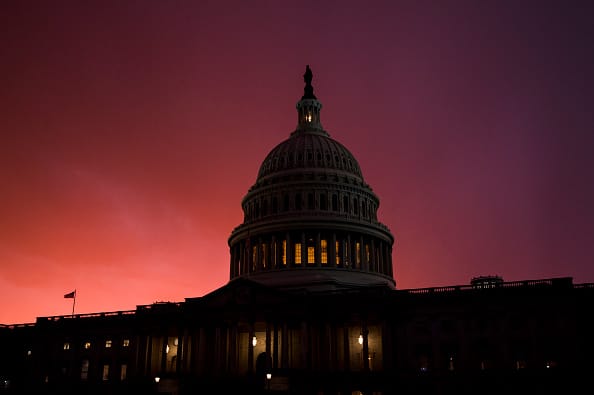As cases of coronavirus rise nationwide and millions remain unemployed, Americans are almost equally split on their financial standing.
In a recent survey, 55% of adults rated their financial security positively, even up slightly from last year before the coronavirus crisis sent shockwaves through the economy, while 42% said their level of financial security was the same or worse since the pandemic began, according to the recent Country Financial Security Index, which polled more than 1,300 people after the presidential election.
"There are many reasons Americans could be feeling good about their financial futures right now," said Troy Frerichs, a vice president of investment services at Country Financial. "Savings rates have gone up, we are hearing positive news about a Covid-19 vaccine and the stock market is at an all-time high."
Indeed, while Americans are largely staying home, the personal savings rate has hit a record high, while news that coronavirus vaccines from Pfizer and Moderna could be given the green light helped fuel a historic market rally and lifted hope of a strong economic recovery.
And yet, data also indicate that the recovery is increasingly uneven.
Even as unemployment has fallen dramatically from its April peak, the wealthy, White and higher-educated were the least likely to lose their jobs early on. And those among them who did have largely recovered.
Meanwhile, other groups, including people of color, lower earners, women and workers with less education, continue to struggle.
These groups are more likely to be working in jobs that have been directly impacted by Covid-19 and less likely to reap the benefits from homeownership and recent market highs.
Months into the pandemic, they are also more likely to report hardship like food insecurity and trouble paying rent.
"The burden of a downturn has not fallen equally on all Americans. Instead, those least able to withstand the downturn have been affected most," Federal Reserve chair Jerome Powell said during a Senate Banking Committee hearing earlier in the year.
However, there are some positive behaviors starting to take hold nearly across the board, according to Frerichs.
"People are cutting back on discretionary spending and paying down debt," he said. "There seem to be some good financial habits taking place."
A separate survey by consulting firm Highland also found that roughly two-thirds, or 63%, of Americans have cut back on spending during Covid-19 primarily because they feel the need to be more cautious with their finances.
"We can only hope that these habits do become engrained," Frerichs said.
Going forward, roughly one-third, or 32%, of Americans said controlling their spending was their top financial goal for 2021, followed by building an emergency fund, paying down credit card or student loan debt and saving for retirement, the Country Financial report found.
"From a financial planning standpoint, those would be the top of the pecking order," Frerichs said.
"between" - Google News
December 02, 2020 at 10:38PM
https://ift.tt/2JDq1Wx
42% of people falling behind as Covid-19 widens the wealth gap, report finds - CNBC
"between" - Google News
https://ift.tt/2WkNqP8
https://ift.tt/2WkjZfX
Bagikan Berita Ini


















0 Response to "42% of people falling behind as Covid-19 widens the wealth gap, report finds - CNBC"
Post a Comment